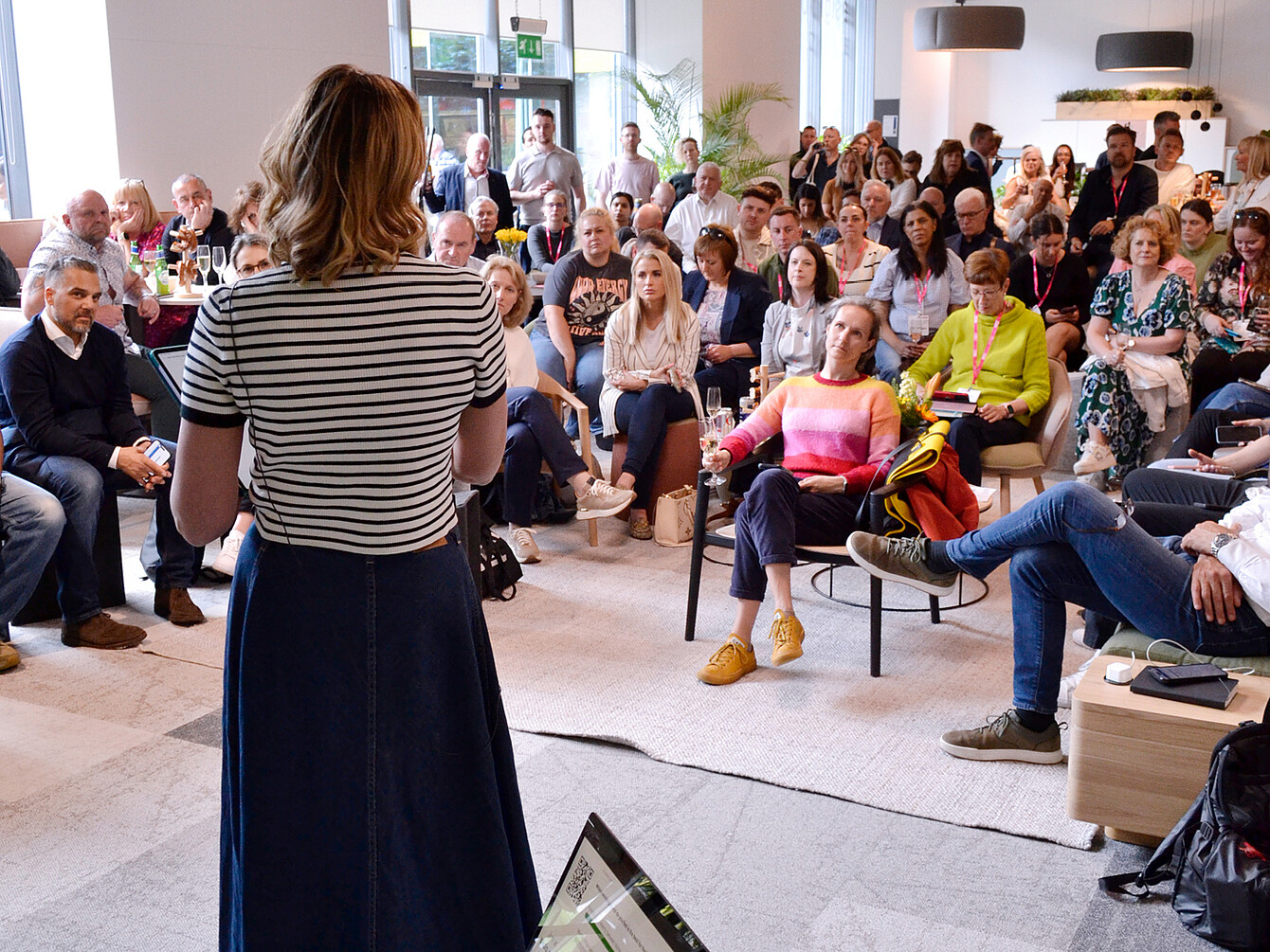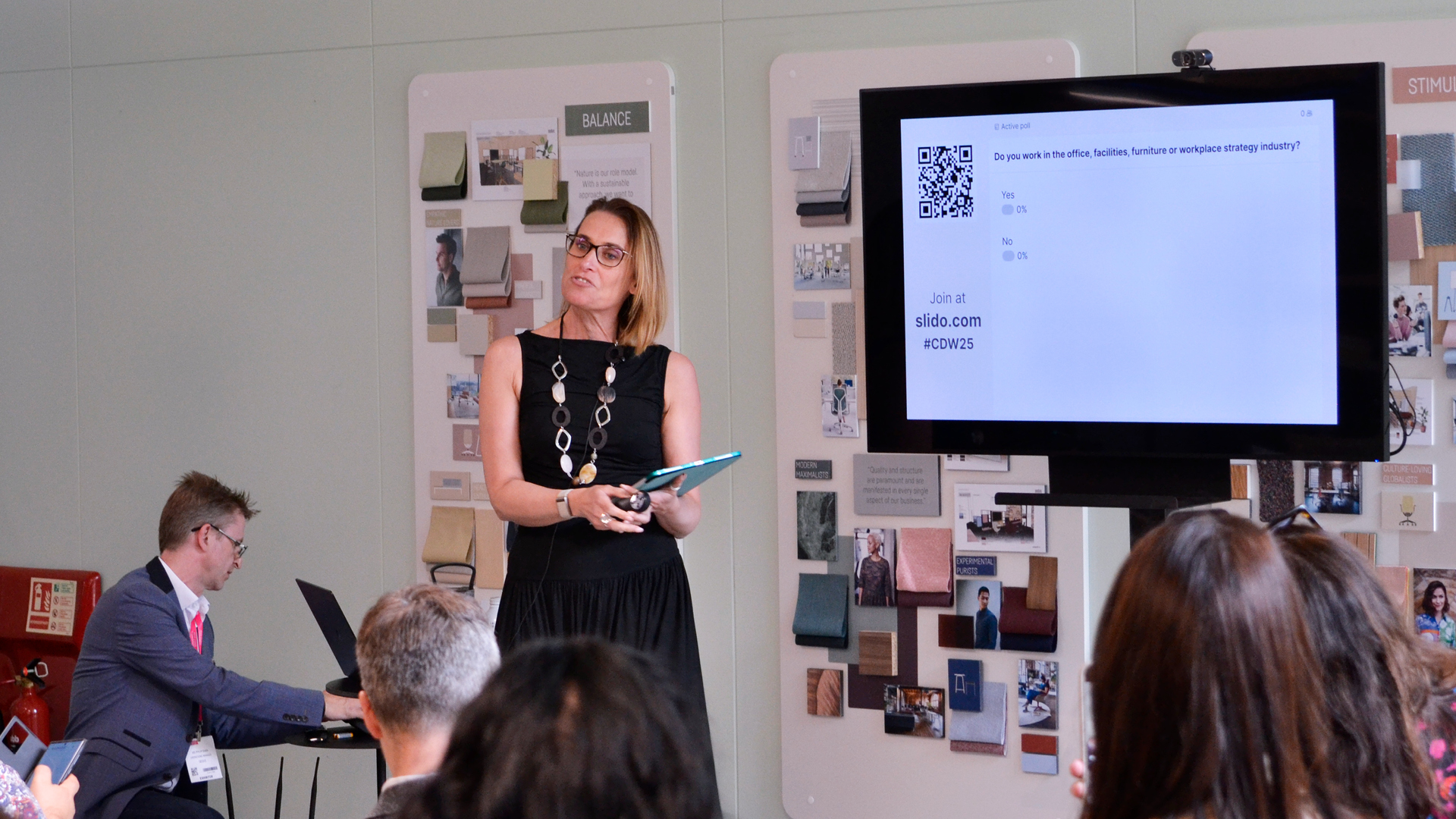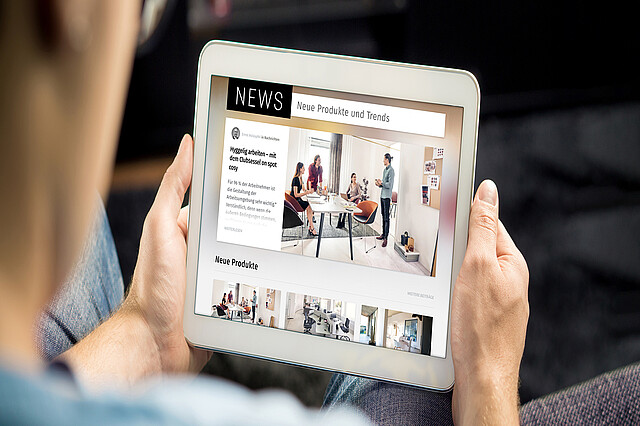In her talk, “The Great Office Reset – Why People Will Return to the Office”, Nardini outlined why employers must offer not just space but purpose to truly entice people back into the workplace. As she argued, the question is not how to return to the office as it was pre-pandemic, but how to reimagine its role entirely.
Her argument was underpinned by a robust study of over 50,000 participants across the UK, which painted a clear picture of the current office landscape – and the gap between intention and experience.
Between Choice and Compulsion – The Reality of Office Attendance
According to the data, London-based employees currently attend the office an average of two days per week – a figure expected to rise to three by late 2025. However, this return is seldom voluntary: 58% cite company policy as the main reason for coming in, while 35% say their manager expects it. Only 19% feel that going to the office is entirely their own choice.
Far from being a source of energy or enthusiasm, the office is often experienced as a stress amplifier. 55% of respondents report higher stress levels in the workplace – with 16% saying it is significantly higher. The causes are frequently systemic: 76% say their current office is not well suited for focused, productive work. Key shortcomings include a lack of private spaces, excessive noise, poor air quality, outdated technology, and uninspiring design.
What Do Employees Really Want from the Office?

Despite these concerns, most employees are not advocating for a total elimination of the office. When asked how they would feel if their physical workplace were removed altogether, only 19% said they would be relieved. The majority – 62% – expressed either curiosity or concern, depending on what alternative would be offered.
What people really want is an office that provides genuine value. An ideal office day feels intentional rather than obligatory. The workspace is prepared in advance, the environment is calm and healthy, and different zones accommodate different modes of work – quiet areas for focus, lounges for creativity, project rooms for team collaboration. Modern technology, good acoustics, fresh air and nutritious food are seen not as luxuries, but as baseline expectations. Mental health and recovery are not just tolerated but embedded in the culture, alongside opportunities for learning, connection, and growth.
In this context, the office is no longer a mandatory location but an experience that energises rather than drains. People leave the office with new ideas, meaningful encounters, and a stronger sense of belonging.
Generational Differences and Expectations
One particularly insightful element of the study is the generational analysis, revealing distinct expectations and values:
Baby Boomers (61+) appreciate routine, structure, and face-to-face interaction. They see the office as a place of reliability.
Generation X (45–60) use the office strategically – for leadership, planning, and team coordination. Quiet, effective spaces are key.
Millennials (29–44) prioritise balance, wellbeing, and flexibility. For them, the office should be a purposeful complement to home-based work.
Generation Z (18–28) value mentorship, modern technology, and meaningful connections. They turn to the office for learning, visibility, and social inclusion – but only when it truly delivers on these fronts.
What Makes a Good Office – Today and Tomorrow

When asked what they would prioritise in a redesigned office, employees identified the following:
- Quiet zones for concentration
- Collaboration spaces with the right tools and tech
- Wellness features such as plants, ergonomic furniture, and calm areas
- Social spaces that foster connection and community
- Seamless technology to support hybrid work
What Nardini refers to as a “curated” office day is no accident – it is thoughtfully orchestrated. It offers a choice of space based on task, purposeful collaboration, healthy amenities, time for rest and reflection, learning opportunities and – crucially – a clear reason to be present.
Conclusion: The Office Must Earn Its Relevance
The office of the future will not be a place of obligation – it must be a compelling proposition. Its value will be judged by the quality of the experience it provides: the ability to foster interaction, inspire creativity, support wellbeing, and enhance productivity. Those organisations that understand this – and act on it – will not only ease the return to the workplace but redefine working culture in a way that is more sustainable, more human, and more forward-thinking.
As Hannah Nardini aptly puts it:
“The best office experience doesn’t demand presence – it earns it.”
social media channels:


